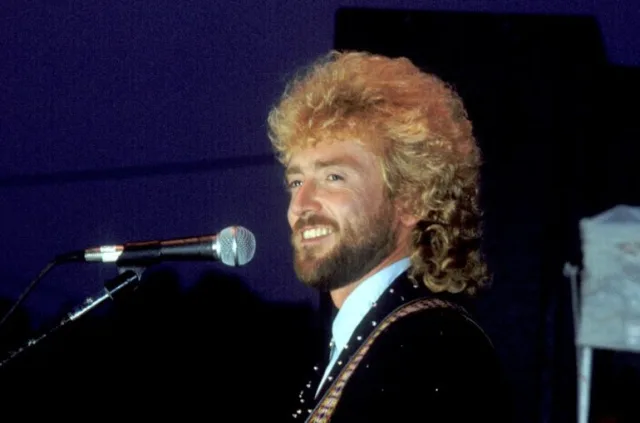
A Broken Farewell Cloaked in Strength: The Quiet Resilience of Letting Go
When Keith Whitley released “I’m Over You” in 1990, the world was already mourning his absence. Issued posthumously on the compilation album Greatest Hits, the single reached No. 3 on the Billboard Hot Country Singles & Tracks chart, a testament not only to its poignant message but to Whitley’s enduring emotional resonance within the heart of country music. Though he had passed away in 1989 at the tragically young age of 34, “I’m Over You” arrived like a whisper from beyond—a soft-spoken ballad that carried the weight of personal loss, romantic sorrow, and the kind of emotional honesty that had always defined Whitley’s artistry.
The song was written by Tim Nichols and Zack Turner, rather than Whitley himself, but it fit him like a well-worn denim jacket—comfortable, sincere, and worn through with ache. In many ways, “I’m Over You” reads like a final page torn from a diary never meant to be shared: deceptively composed on its surface, but trembling with unresolved grief beneath. Its lyrical premise is classic country—a narrator asserting they’ve moved past a failed relationship—but there’s an audible fragility in every line that betrays this supposed strength. “There’ll be no more candlelight,” he sings, and it lands not as defiance but as quiet resignation.
Whitley’s delivery is where the truth lies. His voice—honeyed with Appalachian melancholy and worn by lived experience—draws out each phrase with aching precision. He was a master of emotional restraint, and “I’m Over You” exemplifies this mastery: the pain is there, ever-present, but held just beneath the surface like a man trying to keep his composure at a funeral. That tension between message and emotion is what gives the song its lasting power.
Musically, it is sparse, almost reverent in its simplicity. The gentle strum of acoustic guitar, subtle steel flourishes, and unfussy percussion make space for Whitley’s vocal to lead the emotional charge. There are no grand crescendos or dramatic turns—only a slow, measured confession delivered by someone who knows that heartbreak doesn’t always come in storms; sometimes it arrives in silence.
Culturally, “I’m Over You” occupies a solemn place in country music’s legacy. It encapsulates Whitley’s unique ability to convey vulnerability without self-pity—a trait that places him alongside fellow luminaries like George Jones and Lefty Frizzell. In an era increasingly drawn to polish and production value, Whitley remained grounded in authenticity. This track stands not only as one of his final hits but as a haunting reminder of what might have been had his journey continued.
In essence, “I’m Over You” is less about triumph over lost love and more about the brave face we wear when we’re anything but whole. It is the sound of goodbye—dignified, understated, eternally resonant.